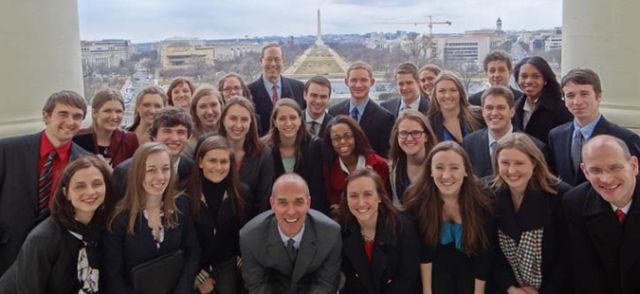Document Type
Article
Publication Date
6-2011
Publication Source
Political Behavior
Abstract
This study uses an experimental design to simulate the ballot counting process during a hand-recount after a disputed election. Applying psychological theories of motivated reasoning to the political process, we find that ballot counters’ party identification conditionally influences their ballot counting decisions. Party identification’s effect on motivated reasoning is greater when ballot counters are given ambiguous, versus specific, instructions for determining voter intent. This study’s findings have major implications for ballot counting procedures throughout the United States and for the use of motivated reasoning in the political science literature.
Inclusive pages
271–290
ISBN/ISSN
0190-9320
Document Version
Postprint
Copyright
Copyright © 2011, Springer
Publisher
Springer
Volume
33
Issue
2
Peer Reviewed
yes
eCommons Citation
Kopko, Kyle C.; McKinnon Bryner, Sarah; Budziak, Jeffrey; Devine, Christopher J.; and Nawara, Steven P., "In the Eye of the Beholder? Motivated Reasoning in Disputed Elections" (2011). Political Science Faculty Publications. 94.
https://ecommons.udayton.edu/pol_fac_pub/94




Comments
The document available for download is the author's accepted manuscript, provided in compliance with the publisher's policy on self-archiving. Differences may exist between this document and the published version, which is available using the link provided. Permission documentation is on file.
Citation: Kopko, Kyle C., Sarah M. Bryner, Jeffrey L. Budziak, Christopher J. Devine, and Steven Nawara. 2011. “In the Eye of the Beholder: Motivated Reasoning in Disputed Elections.” Political Behavior 33(2): 271-290.